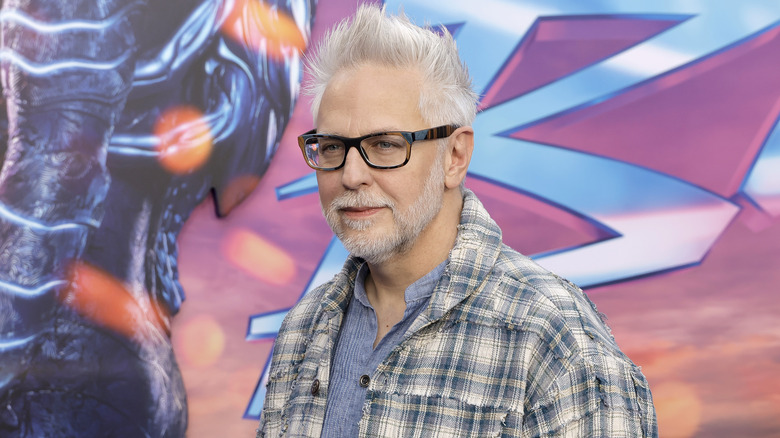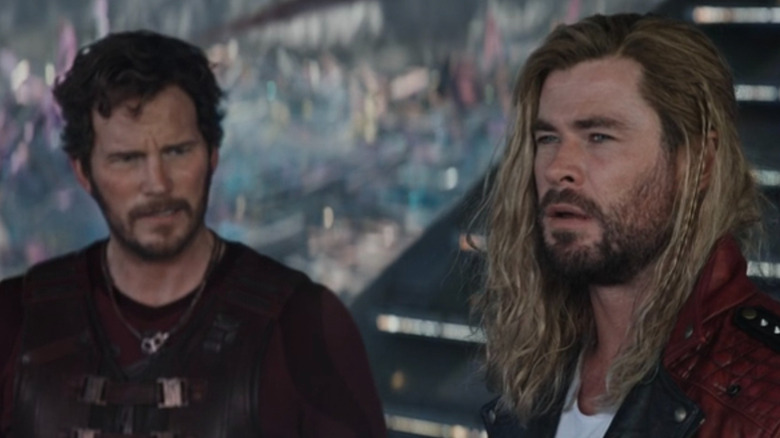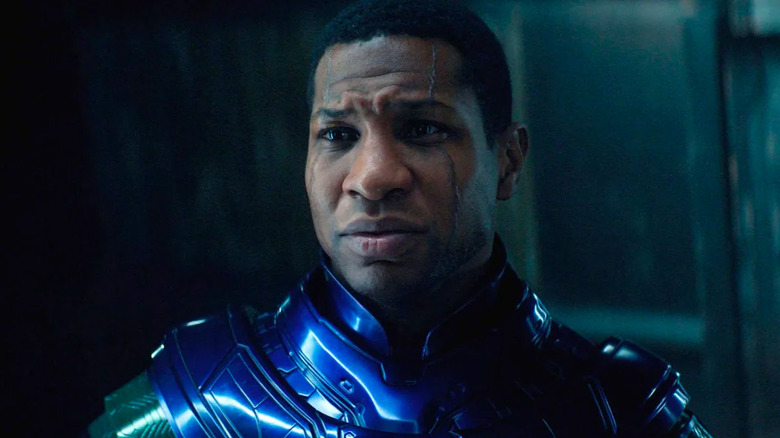DC's James Gunn Wants To Avoid Marvel's Biggest MCU Mistake
The newly appointed handler of the live-action DC Universe and director of "Superman: Legacy," James Gunn, has made it clear to fans that just because he's bringing a massive world of heroes and villains to the screen, their individual stories are still his main concern. Following a fan's argument (via Threads) that the best tactic would be to "build on what's already there with slight course corrections as needed," Gunn, who has spent the last decade bringing comic book characters and their worlds to life, made it clear just how he was going to approach the task that even a Man of Steel might struggle with.
"If you think of anything as 'investing time and effort,' no matter what shared universe, you definitely shouldn't be! Every story should be enjoyed and worth partaking in, in and of itself, without its attachment to an outside world," explained Gunn, who has already given us two DC projects in between his last lap round with Marvel. "If it feels like homework, screw it. 'Shared universes' should add fun to the individual stories, not the other way around. The individual stories and characters are much more important to me than the connections between them."
Now, looking back at Gunn's work that has played a part in two beloved comic book worlds, that certainly feels apparent, even when those worlds were working against him to do so.
Avengers: Endgame went against James Gunn's way of working
If James Gunn's time in the MCU proved anything, crossing the superhero streams was never an essential element of his storytelling. Even when there was a slight hint of dealing with a certain god of thunder, the "Guardians" director admitted he'd not have wasted any time giving Thor the boot. Speaking to Rolling Stone following the release of "Guardians of the Galaxy Vol. 3," Gunn revealed Thor hitching a ride with Star-Lord wasn't on his to-do list. "They chose to have that ending in editing," he explained. "And I didn't think it was gonna be in there. 'Endgame' came out right after I decided to do 'Guardians' again. So I didn't have much say in what was in 'Endgame', and then it came out, and then I was like, 'What the f**k am I gonna do?'"
The issue, as we now know, got dealt with in "Thor: Love and Thunder," although Gunn admitted the sort of tactics he'd have applied if the Asgardian had stuck around. He recalled how he welcomed the news from Marvel Studios head, Kevin Feige, that Taika Waititi was going to handle Thor parting ways. "I said, 'Thank God!'... To be completely honest, Thor was never going to be in this movie. Taika took a bullet for me. Because I was not going to have him in. I was just gonna start up, and there's no Thor." It's this kind of inconvenient placement of major Marvel players that the franchise seems to be suffering from lately, and there's no better example than Thor's own stepbrother and his newest opposition.
Kang is another example of a Marvel misstep
While "Avengers: Endgame" might've shown what can happen when shared universes make for fun stories, it was an event like no other. A movie that all roads within the Marvel Cinematic Universe had been leading to for over two decades. It was understandable that audiences had to have checked everything off the list before seeing it, but that dependency has stuck with the franchise from then on.
Cryptic master of time, Kang (Jonathan Majors), is a walking, talking testament of where they've gone wrong. Debuting in the finale of the heady anti-hero series "Loki," He Who Remains felt like a foe worth fearing and someone who could only be taken on by the likes of Loki (Tom Hiddleston). That's why when Kang squared off with Scott Lang (Paul Rudd) in "Ant-Man: Quantumania" it felt more like squeezing in a piece to a puzzle we didn't need to add yet. Positioning took priority over plot development, with Scott barely changed by the end of the film and Kang feeling nowhere as imposing as he did in the Season 1 finale of "Loki."
Flash forward to now, and the god of mischief's cries of "That's who's coming back!" in the Season 2 debut align far better with more dread than he felt during the Pym and Dyne's family trip into the Quantum Realm. This is the kind of issue that, by the sounds of things, Gunn will ensure to avoid when he takes the DC Universe in an all-new direction, only making space for characters to fly around in specific spaces when they need to.


